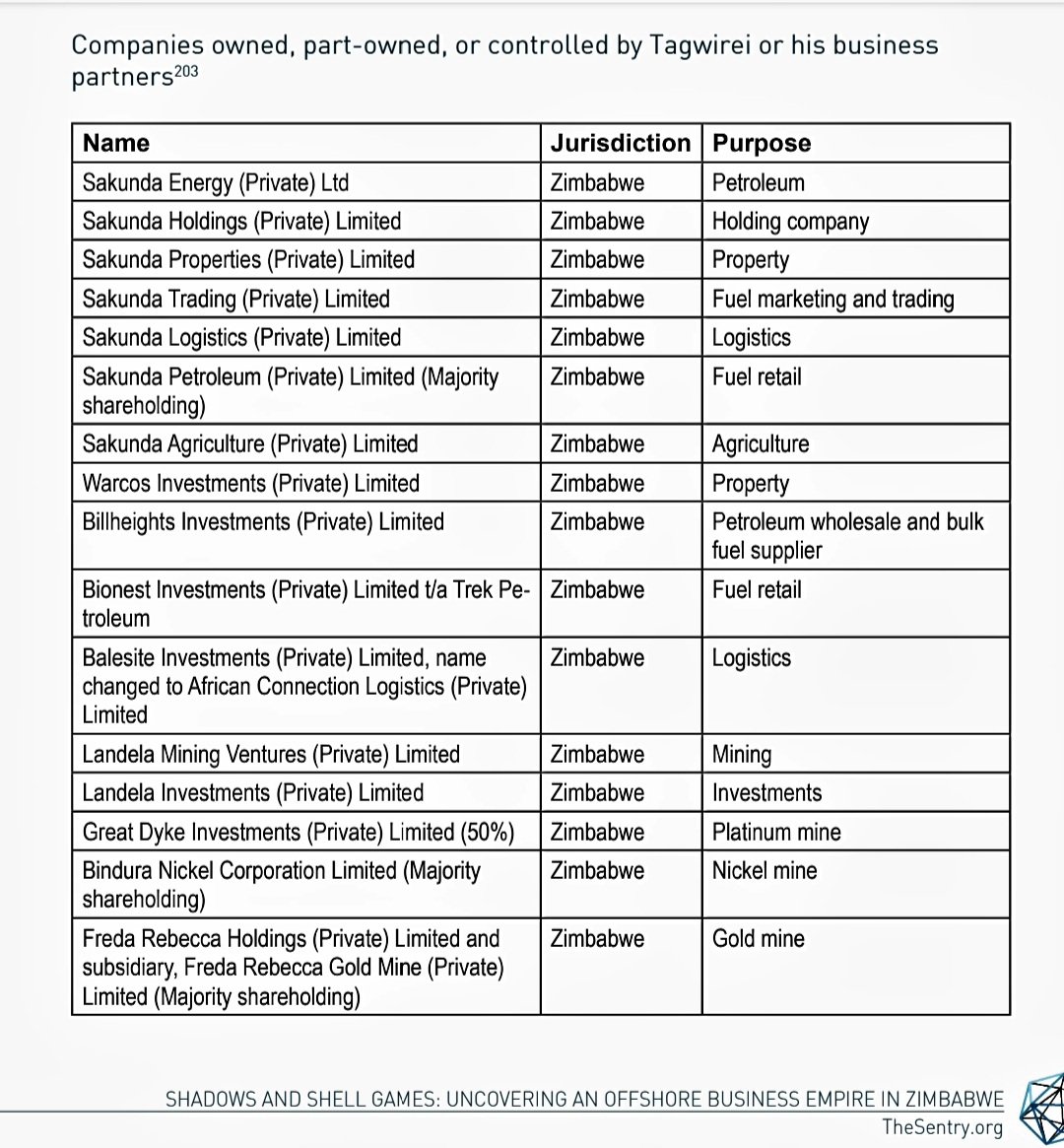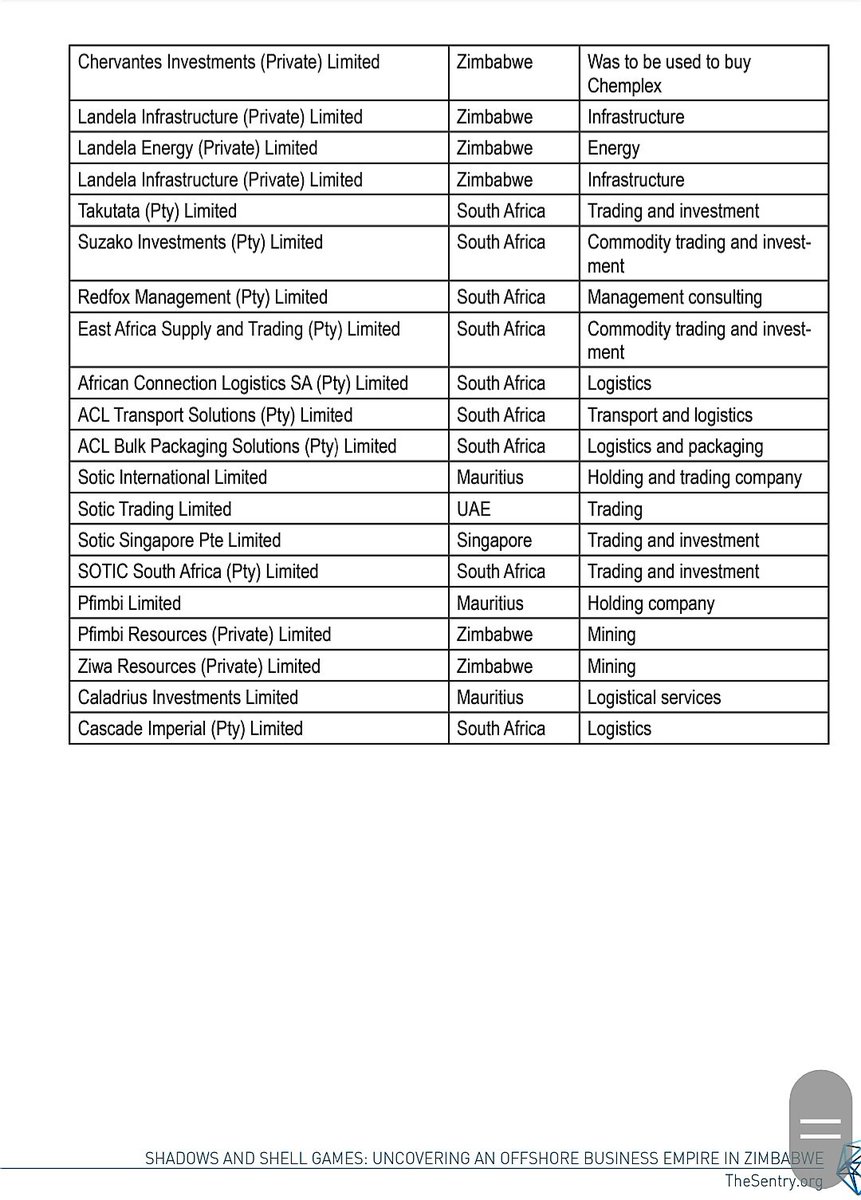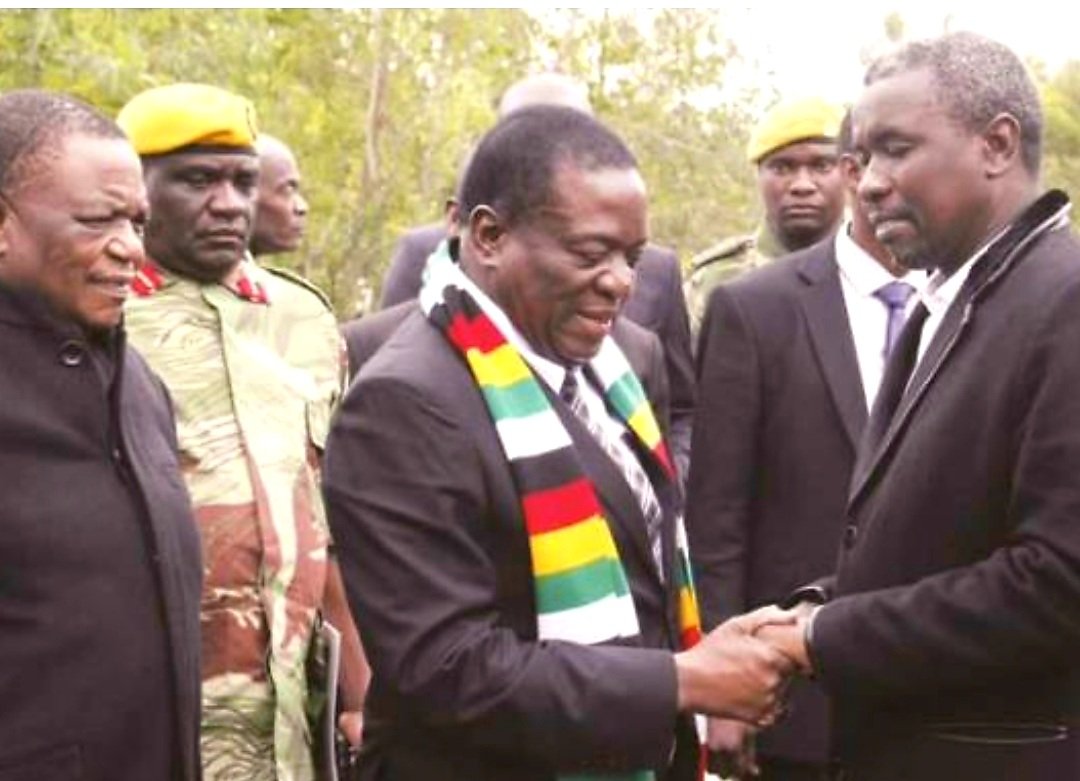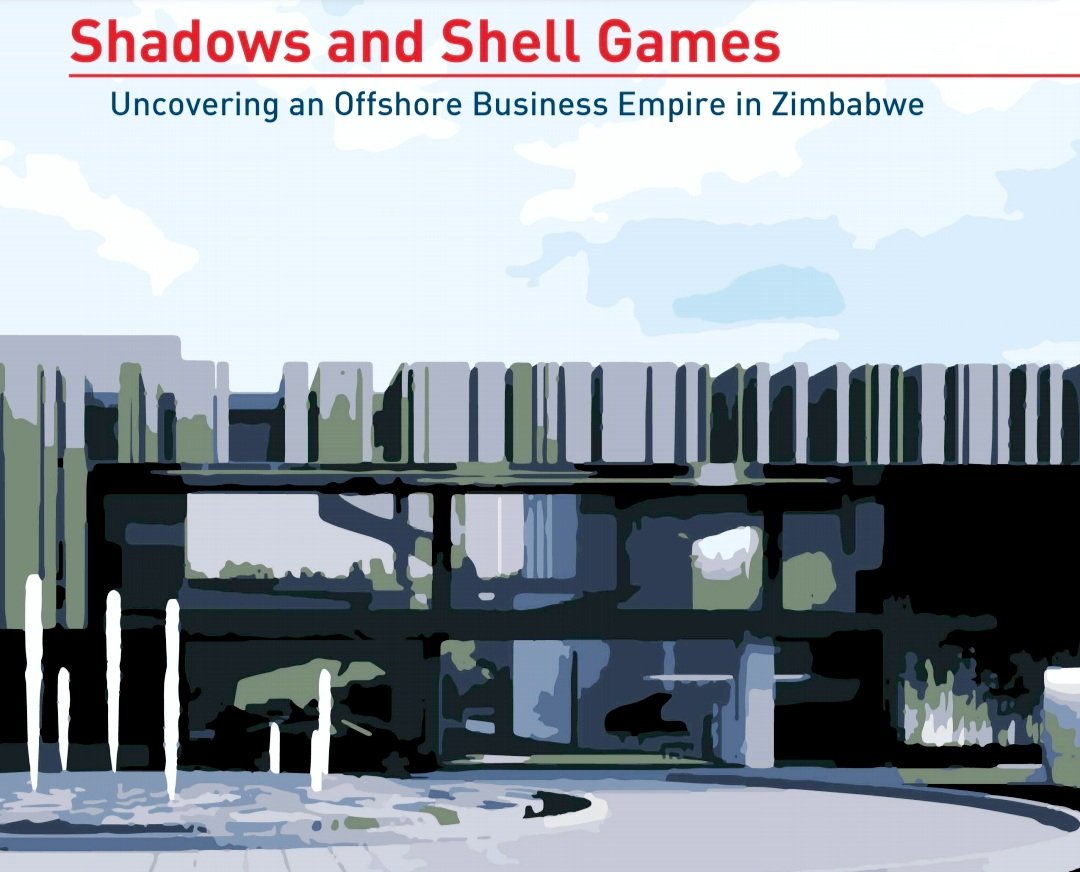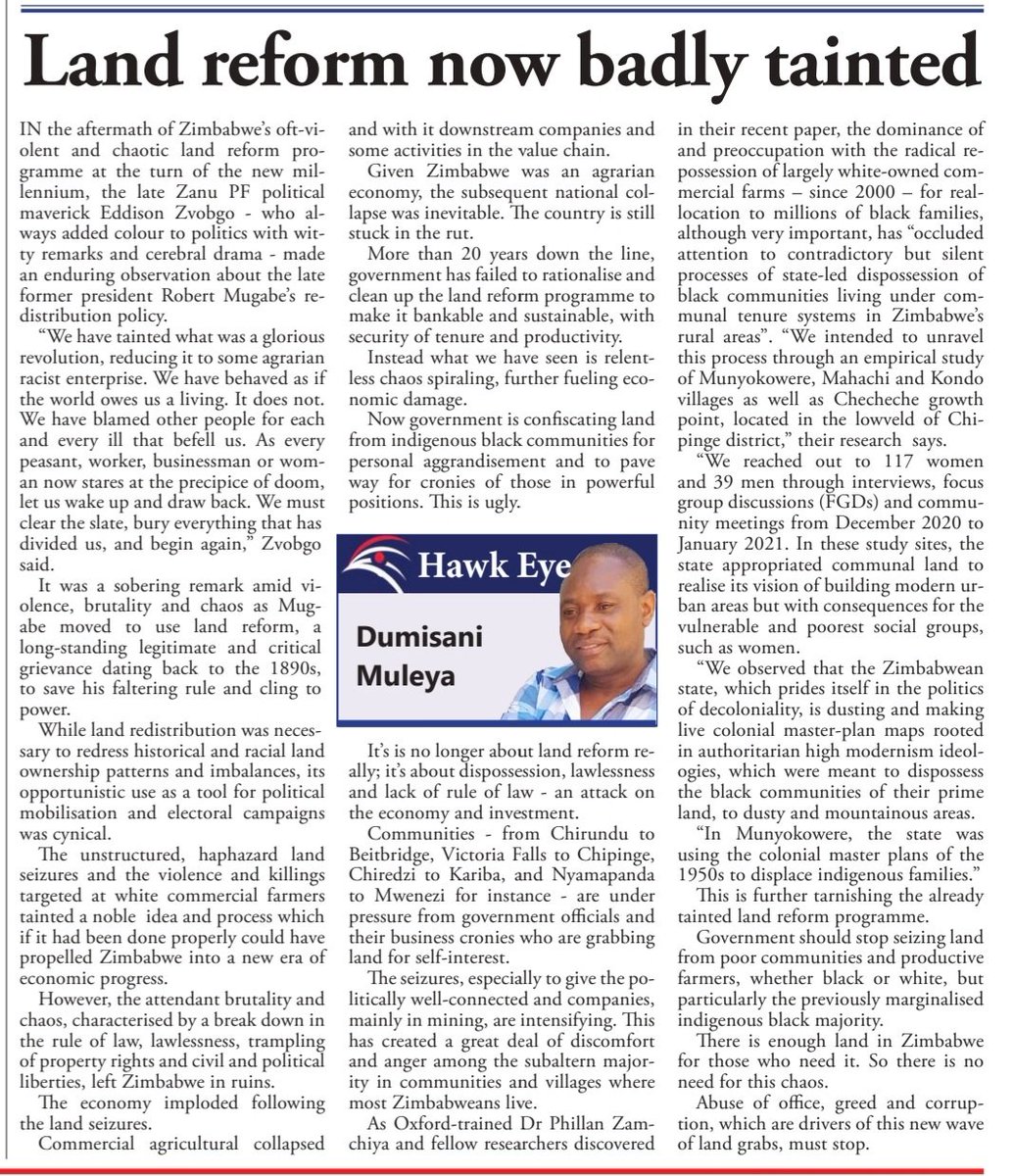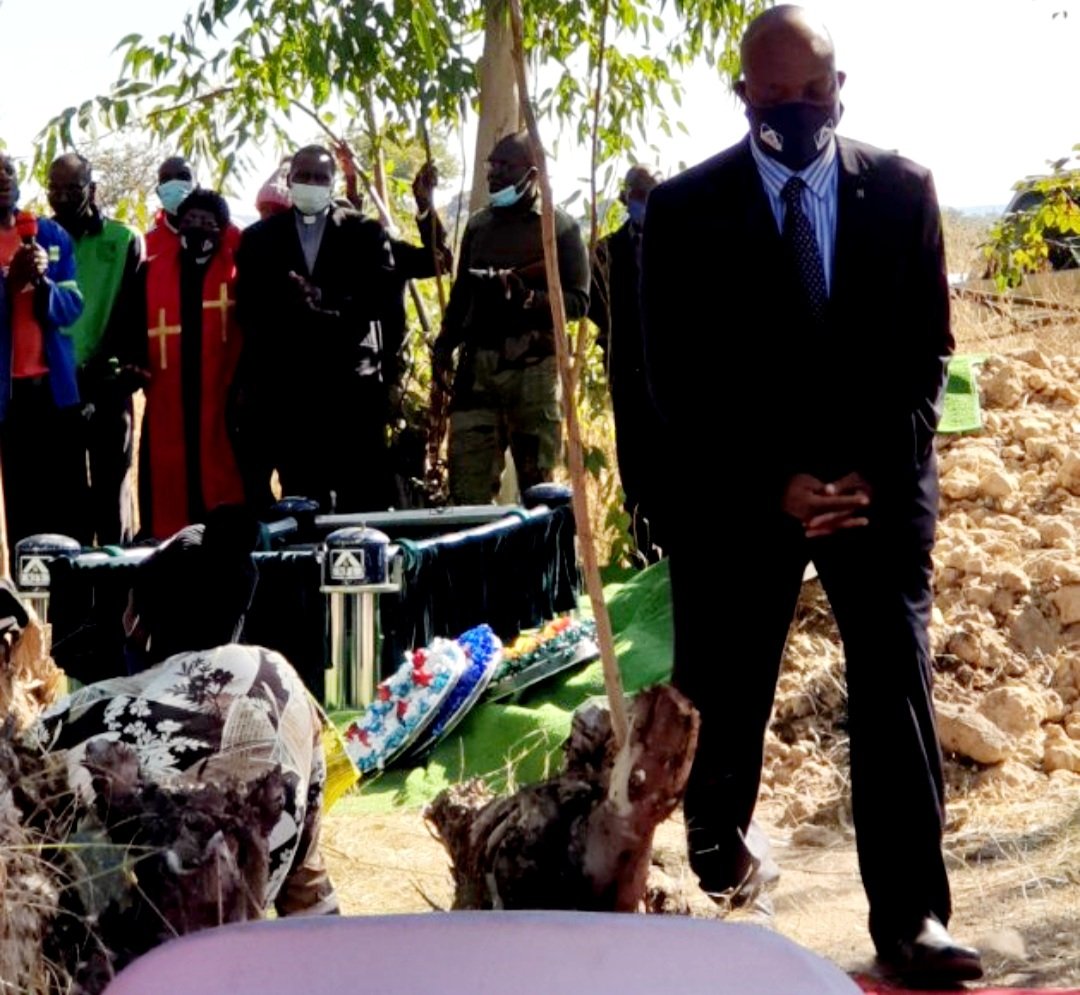
Once a fuel dealer, Tagwirei has emerged as one of the most influential businessmen in post-Mugabe Zimbabwe. In the closing years of Mugabe’s reign and after Emmerson
Mnangagwa’s ascent to the presidency, Tagwirei’s Sakunda Holdings rose and now he has over 40 companies.

Mnangagwa’s ascent to the presidency, Tagwirei’s Sakunda Holdings rose and now he has over 40 companies.

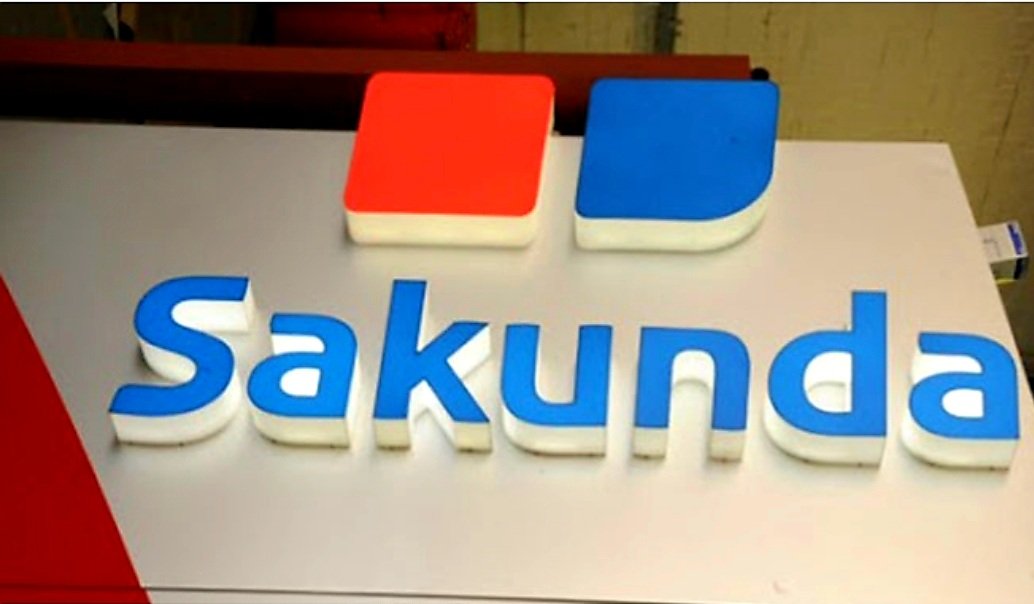
The Sakunda group consists of:
• Takutata Pty Limited (South Africa);
• East Africa Supply and Trading Pty Limited (South Africa);
• Suzako Investments Pty Limited (South Africa);
• African Connection Logistics SA Pty Limited (South Africa);
• Takutata Pty Limited (South Africa);
• East Africa Supply and Trading Pty Limited (South Africa);
• Suzako Investments Pty Limited (South Africa);
• African Connection Logistics SA Pty Limited (South Africa);
ACL Bulk Packaging Solutions Pty Limited (South Africa)
• Redfox Management Pty Limited (South Africa);
• Sotic South Africa Pty Limited (South Africa);
• Balesite Investments PVT Limited (Zimbabwe);
• Billheights Investments PVT Limited (Zimbabwe);
•
• Redfox Management Pty Limited (South Africa);
• Sotic South Africa Pty Limited (South Africa);
• Balesite Investments PVT Limited (Zimbabwe);
• Billheights Investments PVT Limited (Zimbabwe);
•
Bionest Investments Pvt Limited (Zimbabwe);
• Landela Investments Pvt Limited (Zimbabwe);
• Landela Mining Ventures Pvt Limited (Zimbabwe);
• Landela Infrastructure Pvt Limited (Zimbabwe);
• Sakunda Holdings Pvt Limited (Zimbabwe)138;
• Landela Investments Pvt Limited (Zimbabwe);
• Landela Mining Ventures Pvt Limited (Zimbabwe);
• Landela Infrastructure Pvt Limited (Zimbabwe);
• Sakunda Holdings Pvt Limited (Zimbabwe)138;
Caladrius Investments Limited (Mauritius); and
• Sotic International Limited (Mauritius).
• Sotic International Limited (Mauritius).
• • •
Missing some Tweet in this thread? You can try to
force a refresh

